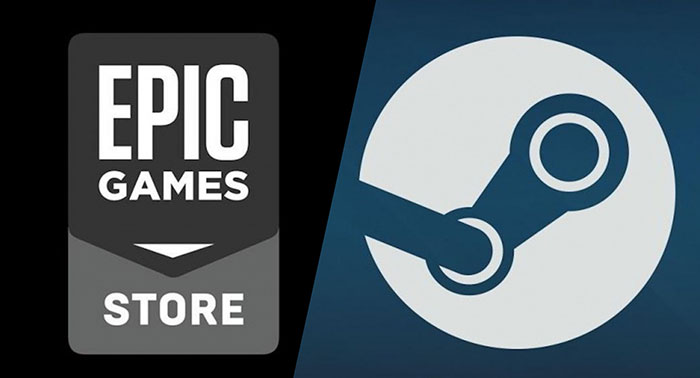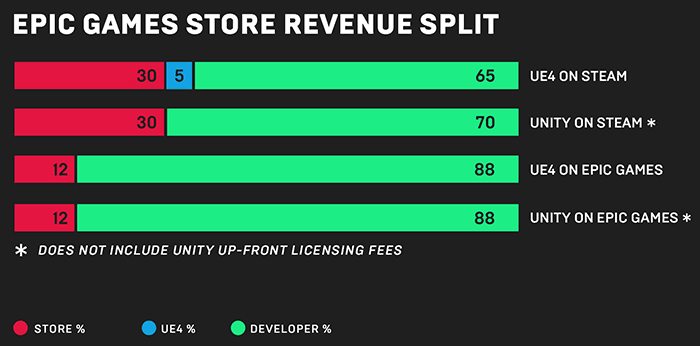When the Epic Games Store was revealed last year one of the key features for the PC gaming industry was the 'fair economics' of the proposition. Then, and now, Valve's Steam platform takes a 30 per cent cut of the revenue generated in a game sale - that's 70:30 in favour of the developer. The Epic Games Store rebalances this significantly to 88:12. There were other interesting tweaks too, as you can read about those in the linked story, but the revenue split is the largest industry-impacting change.

Over the last few months we have seen the Epic Games Store grow and introduce some further controversy to the PC games market. The largest bone of contention with PC gamers seems to be a series of announcements of Epic Games Store exclusives. One can understand developers being interested in the new PC games store thanks to its better revenue spilt. Furthermore, the e-store migration doesn't seem to have any ill-effects - last month for example: "Metro Exodus sold two and a half times more copies on the Epic Games Store than Metro Last Light sold in the same amount of time on Steam," according to a Polygon report.
If Steam committed to a permanent 88% revenue share for all developers and publishers without major strings attached, Epic would hastily organize a retreat from exclusives (while honoring our partner commitments) and consider putting our own games on Steam.
— Tim Sweeney (@TimSweeneyEpic) April 25, 2019
A few hours ago Epic CEO Tim Sweeney threw down the gauntlet to Valve and said that if Steam would reduce its revenue share permanently then Epic Games Store exclusives such as the aforementioned Metro Exodus, and Borderlands 3, would be phased out. Other notable exclusive titles are; The Division 2, Control and The Outer Worlds. The Epic CEO's Tweet is embedded above.

Some people object to the Epic Games Store due to the exclusives and the fracturing of the PC games ecosystem - requiring more DRM-games clients. Others, even ex-Valve employees, reckon that the challenger is reinvigorating the PC market, fostering change and saving PC gamers from a "30 per cent tax on an entire industry" and stagnation.













